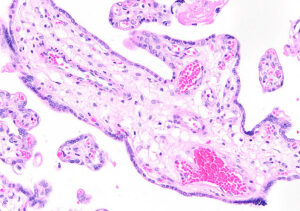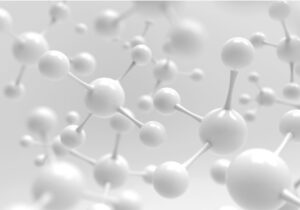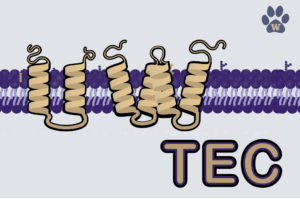Homepage
InTEC is a nationwide consortium to advance our understanding of how membrane transporters control the movement of nutrients, medications, supplements, and environmental chemicals between mother and baby.
Predicting Maternal-Fetal Transfer with Innovative Technologies
Define the Placental Transporter Proteome in Healthy and Diseased Pregnancies

The developing baby needs nutrition from its mother in order to grow and properly develop. One means to obtain this nutrition is through a placenta – an organ that comes from the baby and connects to the mother. Nutrients cross the placenta – but so do medications, supplements, and toxicants. Our research seeks to reveal how these chemicals move back and forth between mother and baby.
We are integrating data obtained from human pregnancies to define the transporter proteome healthy pregnancies as well as those complicated by diseases such as preeclampsia and gestational diabetes.
Predict and Test Novel Functional and Regulatory Interactions of Chemicals with Transporters

Drugs and chemicals are often too large to enter and exit cells unassisted. Transporter proteins can be used as gates that regulate which chemicals enter and leave cells. In fact, the Solute Carriers (SLC) are proteins that can regulate the uptake or removal of chemicals from cells or organelles. In addition, the ATP-binding cassette transporters (ABC) function as efflux pumps that remove chemicals from the cell.
We are applying cheminformatic and machine learning approaches to reveal new substrates and inhibitors of placental SLC and ABC transporters.
Evaluate Drug and Chemical Transfer in a Human Placenta-on-a-Chip Model

Pregnancies in animals such as mice and rats are quite different from humans! We are using bioengineering and microfabrication approaches to create simple and complex physiological systems that resemble the maternal-fetal barrier.
For these studies, placenta-on-a-chip systems are fabricated, seeded with human placental cells, and placed under dynamic flow that allow for selective infusion and sampling of nutrients, drugs, supplements, and toxicants.
Learn about the other NIH Transporter Centers
UWTEC

PIs: Dr. Joanne Wang and Jashvant Unadkat
The broad goals of this Transporter Elucidation Center (TEC) at the University of Washington are:
- to identify and quantify transporters in the human placenta from early gestation to term, and in the developing gut (fetal and neonate/infant);
- to functionally characterize and determine the cellular localization of the highly abundant transporters identified in these human organs.
Read more here.
UCSF TEC

PIs: Dr. Kathy Giacomini and Robert Stroud
The overall goal of the TECUCSF is to elucidate the ligand specificity, protein structure and cellular localization of SLC and ABC transporters in the human blood-brain barrier. Based on preliminary studies from our global proteomic analyses, we will prioritize a list of 30 highly expressed and understudied/orphan SLC and ABC transporters in the human blood-brain barrier. Read more here.
MINeD

PI: Dr. Rajini Rao
The initial focus of the Minerals In Nutrition and Development (MINeD) center at Johns Hopkins University will be in the developing gut and adapting maternal intestine and breast. During pregnancy and lactation, drastic remodeling of the mammary gland enables the synthesis and secretion of milk to sustain and nourish the infant. Importantly, transcriptional data from human milk-derived epithelial cells point to a key role for metal homeostasis. A functional understanding of metal transporters and their broader role in nutrient transport during lactogenesis is critically needed. Read more here.
Recent News
InTEC Research Highlighted at the Inaugural Triangle Placenta Symposium
The InTEC team presented their latest research at the Triangle Placenta Symposium on Nov 20, 2025 at Duke University (Durham, NC).
InTEC Trainee Rachel Buckley Receives Pilot Grant from MPRINT
Solute carrier membrane transporters (SLCs) are a class of membrane proteins that regulate the passage of small molecules across the placenta to a developing fetus. The extent to which a … Read More
A New Placenta Center at Rutgers will Support Healthy Pregnancies
Rutgers University is teaming up with other top schools to launch a research center funded with a $5 million grant by the National Institutes of Health to find out how … Read More